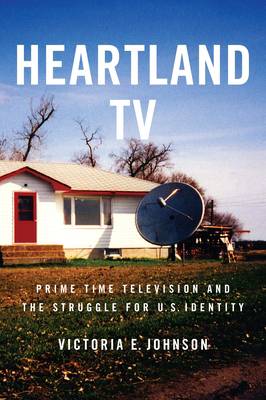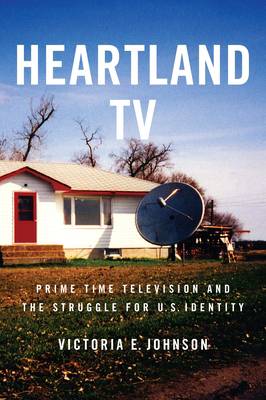
- Retrait gratuit dans votre magasin Club
- 7.000.000 titres dans notre catalogue
- Payer en toute sécurité
- Toujours un magasin près de chez vous
- Retrait gratuit dans votre magasin Club
- 7.000.0000 titres dans notre catalogue
- Payer en toute sécurité
- Toujours un magasin près de chez vous
Heartland TV
Prime Time Television and the Struggle for U.S. Identity
Victoria E JohnsonDescription
Winner of the 2009 Society for Cinema and Media Studies Katherine Singer Kovacs Book Award
The Midwest of popular imagination is a "Heartland" characterized by traditional cultural values and mass market dispositions. Whether cast positively --; as authentic, pastoral, populist, hardworking, and all-American--or negatively--as backward, narrow-minded, unsophisticated, conservative, and out-of-touch--the myth of the Heartland endures.
Heartland TV examines the centrality of this myth to television's promotion and development, programming and marketing appeals, and public debates over the medium's and its audience's cultural worth. Victoria E. Johnson investigates how the "square" image of the heartland has been ritually recuperated on prime time television, from The Lawrence Welk Show in the 1950s, to documentary specials in the 1960s, to The Mary Tyler Moore Show in the 1970s, to Ellen in the 1990s. She also examines news specials on the Oklahoma City bombing to reveal how that city has been inscribed as the epitome of a timeless, pastoral heartland, and concludes with an analysis of network branding practices and appeals to an imagined "red state" audience.
Johnson argues that non-white, queer, and urban culture is consistently erased from depictions of the Midwest in order to reinforce its "reassuring" image as white and straight. Through analyses of policy, industry discourse, and case studies of specific shows, Heartland TV exposes the cultural function of the Midwest as a site of national transference and disavowal with regard to race, sexuality, and citizenship ideals.
Spécifications
Parties prenantes
- Auteur(s) :
- Editeur:
Contenu
- Nombre de pages :
- 262
- Langue:
- Anglais
Caractéristiques
- EAN:
- 9780814742938
- Date de parution :
- 01-01-08
- Format:
- Livre broché
- Format numérique:
- Trade paperback (VS)
- Dimensions :
- 153 mm x 228 mm
- Poids :
- 381 g

Les avis
Nous publions uniquement les avis qui respectent les conditions requises. Consultez nos conditions pour les avis.






